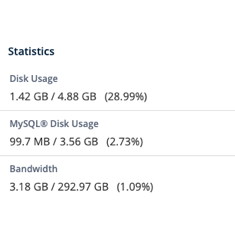Writing a CFA® exam
June 4th, 2012
Not sure why, other than sheer stubbornness and a willingness to suffer and waste an uncountable number of evenings and weekends, but I did finally pass the CFA Level 1 exam. It took even more time and effort but I eventually passed all three exams while living in China, a country where it is hard to maintain a blog or use social media other than WeChat. Keeping this blog online has not been helped by all the spammers, scammers, and thieves online who do things like take credit for my work.
If I have one last piece of advice to add to this post, besides don’t be like me, and don’t get sick, it would be write the exam in a less busy test centre. Writing in Shanghai China is definitely not advantageous. I also suggest you do a lot of practice problems such as these 30 I carefully selected and cooked up. My final suggestion is not to blog about your journey or experience as a CFA Candidate at least not until you successfully complete all three exams.
Now in 2022 it seems the CFA Institute is actively encouraging Charterholders if not Candidates to use social media. Be aware that social media usage can be monitored and archived.
2019 & 2020 Will Change the Exams
Level 2 and Level 3 are changing in 2019 to allow question vignettes of size four instead of always grouping questions in sixes. The even bigger news is the switch in 2020 to using a computer to set the exam allowing for a faster turn around of your score and more frequent testing. I’ve taken standardized exams on computers it is probably easier it depends on the software. Some systems let you go back and change answers some do not, regardless my advice and the advice of all the ‘experts’ will not be based on writing these new versions of the exam.
So here is some slightly dated advice:
Don’t Talk About Exam Specifics
Perhaps I should have written this blog post immediately after the exam, as I’m not sure I remember all my thoughts, but the CFA Institute does not want you discussing what actually appeared on the exam, something folks in Victoria seemed to do the instant they were let out for lunch.
What the CFA Institute really doesn’t want is people getting an unfair advantage. You’re allowed to complain about CFA Institute policies online, you’re just not suppose to talk about specific questions, nor share information with people in other timezones who have yet to sit the exam.
Most Candidates Fail
The CFA Level 1 exam has a low pass rate. They never reveal your exact score or the exact score you need to pass and it likely changes from year to year. Years ago the buzz on the Internet was you needed to get over 70% correct in most every section with specific heavily weighted sections like Ethics and Financial Statement Analysis being must pass, while smaller sections like Portfolio Management or even Economics are less vital. I’ve written the exam more than once and have done well and less well in various sections, the material that most concerned me heading into this exam was Financial Statement Analysis. It is both the largest section and the one in which I have the most difficulty getting over 70% correct.
Time Management is Important
I managed to get over 70% correct in the last batch of practice problems I did but that seems to be cutting things a little close. I was averaging 66.67% on the FSA sections of practice exams leading up to June 2nd. The folks who make the practice exams preach that you should expect to do worse on the actual exam day due to stress, fatigue, stricter time constraints etc. So I decided to attempt my two weakest sections first, FSA and Fixed Income. I then planned to do the Ethics questions as it is also considered “must pass” (must achieve 70+ %) by popular online opinion. In both sessions I thought I was doing alright for time over the first hour and a half or so. But during both sessions I had to rush at the end.
You Need to Prioritize
Officially you have 1.5 minutes per question. Some questions take over 1.5 minutes to read or re-read for clarity. Others require significant button pressing, doubled if you want to verify your calculations. The first time I wrote the exam I made sure to read every official reading, but I didn’t do enough practice problems. Since then I’ve devoted much less time to the official readings and much more time to practice problems and unofficial study material. The weighting of the various sections is set in stone for the year, but I spent a disproportionate amount of effort on the most challenging material, both leading up to the exam and during the exam. As a result my score in Economics or whatever section I attempted last may suffer.
You need to try and get 70%
I think I can achieve over 70% in every section, I just have not accomplished that on exam day. I can make excuses, the latest being my sudden inability to sleep or the 3+ hour drive down Island or whatever. I’m glad it is out of my life for a while, now I can feel less guilty about not studying all the time. Of course in a few weeks when I get my score I may feel even more guilt.
Unofficial Study Materials are Popular
I’ve made much of my personal study materials available online and I typed up my many flash cards. The folks who create the exam definitely have a vested interest in seeing the pass rate remain low, more alarming is the number of people who pay to sit the exam but don’t show, this is most apparent at large test centers filled with empty but numbered desks. I guess people thought the 250-300 hours suggested studying time was in jest. Some questions are a case of memorization, others involve logic. Economics has approximately 1/6th of the reading material but is only worth about 1/10th of your score on Level 1, this makes it perhaps the most frustrating section.
You Can Not Anticipate Every Question
For some of the exam questions the answer was on a flash card I made or I had seen a problem like that before, other times the question was not something I’d reviewed at all. In Level 1 all the questions are multiple choice and there are now only three answers to choose amongst. Often you can quickly eliminate one answer leaving you to him and haw, often for well over 1.5 minutes between the remaining two. Some questions do require a calculator, supposedly those are less numerous than they used to be. Sometimes the answer is as simple as one number divided by another, such as in the case of the standard error of the sample mean. The folks who design the exam are not above giving you superfluous information, see the bit above about having to spend more than a minute reading, or rereading a question. During the exam I took to underlining key words such as: semi-annual, most likely, least likely, or closest to. Sometimes these words are in italics, sometimes they are not.
They Have More Than One Way of Testing Concepts
For a question involving say the dividend discount model, it is basically one number divided by another number. Technically you need: dividend at time one, cost of capital, and growth rate. These are represented by d1, k, and g. There are many, many examples of how to make these questions trickier by providing information you don’t need, or requiring you to calculate d1, k, and g given d0, Rf, beta, ROE, dividend retention rate, etc. Officially you only have 1.5 minutes per question so you need to get very fast at doing some styles of questions, in order to then have more time for questions which are more subtle or require a lot of reasoning. Sometimes you need more time to double and triple check your answer.
The Best Answer isn’t Always Correct
A frequent technique seen on the exam and in practice problems is not asking for the exact answer but the answer closest to the ones provided. There is probably some small print somewhere that I read which instructs you to maintain four decimal point accuracy, but the official answers will often be rounded. It is possible to do a question correctly then get an answer larger or smaller than any of the choices. This is another place where you lose time recalculating everything when in fact you have done the question correctly the first time. I don’t know what to advise other than having enough confidence not to recalculate or doing what I did and prioritizing certain sections so that I had time to redo calculations on the sections I was most worried about. Sometimes the question specifies choosing the worst answer or the one that is incorrect.
I don’t really have any more advice, now those people who actually showed up and sat the exam wait for the results in approximately 8 weeks. Level 1 Candidates can rewrite in December, other levels have to wait a full calendar year. At some point I closed comments on this post, probably too many spammers. You can contact me regardless with a modicum of effort if you must.
This entry was originaly posted on , it was last edited on and is filed under: Advice and tagged: CFA®, Exam, Finance.





Well done for passing the CFA level 1 exam! Perseverance is always rewarded with the CFA exam. Some people (including me) need more time.
This post is probably the best one of mine about the CFA program, as A) I wrote it shortly after writing the exam, B) I ended up passing, C) I ended up typing up 400+ cue cards I made which helped me pass, and D) it is filled with honest, helpful, hard earned advice, from someone who has sat the CFA Level 1 exam on multiple occasions and didn’t come from a finance background. I had completed two difficult degrees prior and I’m stubborn…
I was also sick or ill to varying degrees through the whole process. My time in the CFA program has gone far from smoothly.